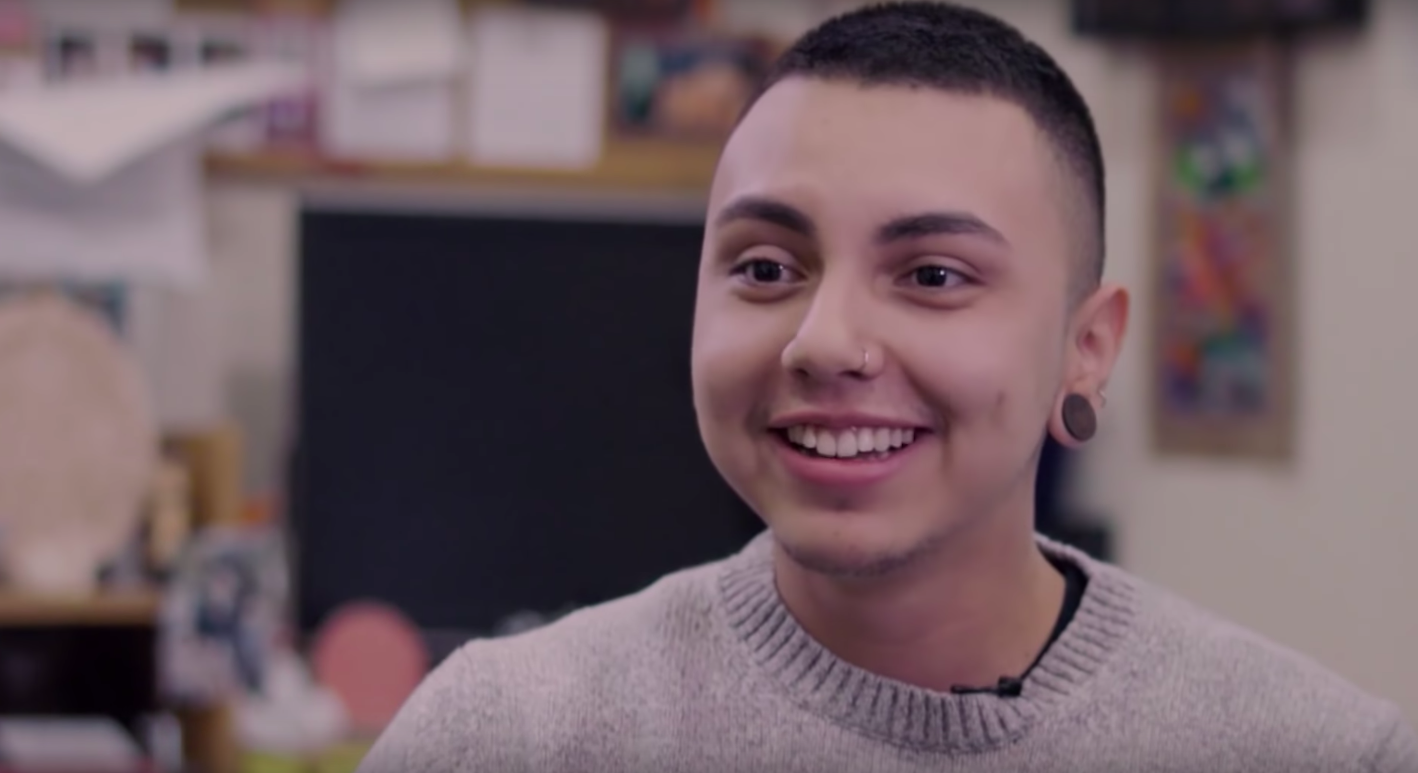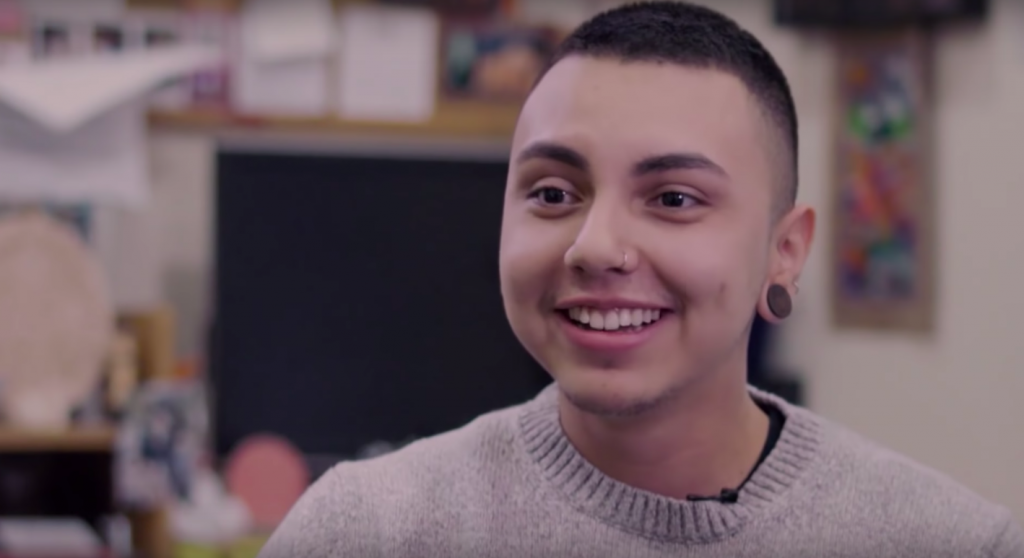It is in the web series that hard-hitting journalism and unique perspectives are finding their voice. With the continued struggles involved in immigration in the United States, web shows are trying to spotlight the subject in different ways; PBS Digital Studios is one, arriving with the third season of their series First Person. The series looks at gender and sexuality, but a recent episode stops to look at the subject with the added issue of being an undocumented trans person living in the U.S.
The episode follows Mateo, a trans man living in New York. Mateo spends parts of his day working with the immigrant advocacy group Make the Road as a means of keeping him “grounded.” He elaborates on the fact that immigration problems didn’t immediately concern him as he went through school; he was more interested in “exploring my queer side” at the moment. The audience meets Mateo’s family, particularly his Colombian mother. He explains that, while his mother was initially resistant to him transitioning into a man – he told his family before they left Colombia for the U.S. to prevent claims that his new homeland “made me gay” – it was his great-grandmother who took the first steps to acceptance, addressing him casually by his new name and giving him a watch with a card addressed “to my grandson.” It is these moments that mean a lot to Mateo, as even he was surprised at how welcoming his family was, something he doubt would have happened has his father still been in the picture. The eight-minute short continues with Mateo announcing he’s returning to his Colombian hometown to visit friends and relatives, who he sheepishly admits will probably make fun of his facial hair. But regardless there’s a belief that his transition won’t be an issue.
The final minutes involve asking about the current state of immigration in the country. Mateo explains he’s not big on the term “DREAMer” because of how binary it is – lumping people into categories of “good” or “bad.” For him, “it leaves out the community members who have the least support from the system.”
Mateo’s story is compelling and provides a different experience on how gender fluidity and trans members of the immigrant community navigate ever-changing waters. With such focus being placed on presumably heterosexual, cis families it’s worth showing how the queer and trans communities are also being brought in to the growing issues involving U.S.-Mexico relations.




